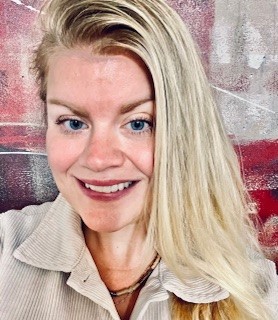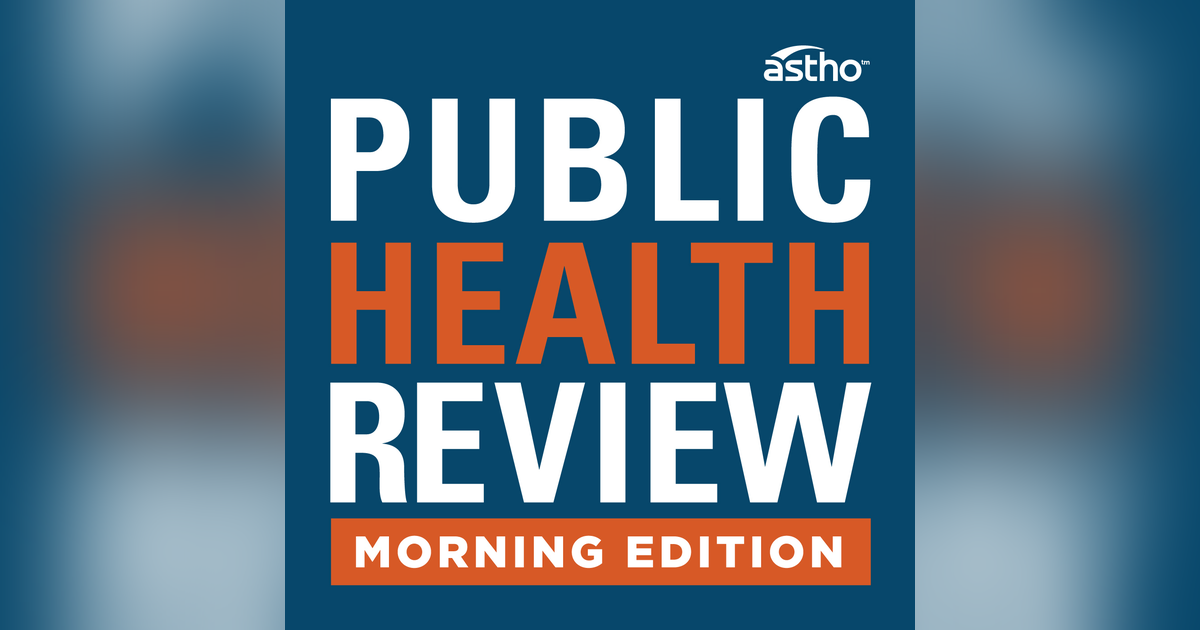Alfarena McGinty, Marion County coroner in Indianapolis, Indiana, explains how her department’s investment in Fast Healthcare Interoperability Resources (FHIR) has improved the efficiency and interoperability of timely mortality data; Amanda Jones, data modernization director at the Vermont Department of Health, discusses why her department created a Data Modernization Advisory Committee to promote cultural change and foster excitement around new technologies; ASTHO is now accepting applications from state health agency staff and levels of maternal care leaders for a Community of Practice to address maternal care challenges; and today, October 24, is the deadline to apply to participate in ASTHO’s success story discussions on preventing adverse childhood experiences.
CDC Foundation: Resources for MDI Offices and IT Developers
ASTHO Report: Accelerating Data Exchange in Public Health: Insights from Public Health FHIR Pilots
ASTHO Blog: Creating Shared Vision and Governance for Data Modernization in Vermont
ASTHO Web Page: Bridging Barriers in Maternal Health Access Community of Practice
JANSON SILVERS:
This is the award-winning Public Health Review Morning Edition for Friday, October 24, 2025. I'm Janson Silvers. Now, today's news from the Association of State and Territorial Health Officials
ALFARENA MCGINTY:
FHIR has transformed our ability to share timely, accurate, and standardized information. So, what once took up to 24 minutes to complete a death certificate, it is now down to about five minutes.
SILVERS:
Coroners play a vital role in public health monitoring mortality trends, to alert local agencies of emerging threats in a role like this, access to fast and accurate data is essential. That's why Alfarena McGinty, the coroner for the Office of Marion County, invested in Fast Healthcare Interoperability Resources, or FHIR, a system that makes data ready for analysis as soon as a record is certified.
MCGINTY:
So, the real-time connection lets our public health partners detect emerging threats, quickly turning coroner's data and death certificates into, sort of, actionable insights on those certificates, rather than waiting for after-the-fact reports and data that we would typically have just uploaded into another system.
SILVERS:
McGinty says the coroner's role is to ensure death data is accurate, and data modernization efforts are needed to ensure that information gets to where it's needed most.
MCGINTY:
We are the first on the scene to identify any public health trends that are happening in our communities, and so we're the first to document these trends, and mortality data, and information.
SILVERS:
For public health agencies looking to strengthen collaboration efforts with coroners, McGinty recommends an investment in shared FHIR infrastructure and technical training.
MCGINTY:
So, for example, like dedicated quality assurance staff epidemiologists that work directly with our agency would be helpful informatics positions that could be helpful for our agencies to maintain this interoperability. That helps us, because our focus is in is death investigation.
SILVERS:
You can learn more about how to accelerate data exchange to produce impactful outcomes in your jurisdiction by clicking on the link in the show notes.
Data modernization is a team sport requiring input and effort from public health professionals in every expertise. So, when the Vermont Department of Health wanted to get started, they used the Public Health Infrastructure Grant to create a Data Modernization Advisory Committee made up of various experts across the department. Here's Amanda Jones with the Vermont Department of Health.
AMANDA JONES:
It took a while, but now we're in a place where they all feel comfortable working with me together, and they know that I know the answer. I can speak for the programs, the business, and the finance. So, I intentionally learned where maybe I had an area to grow and put my energy there.
SILVERS:
Modernization efforts often require already overburdened public health professionals to take on more responsibilities. So, Jones made sure to uplift the voices of those doing the work and make them the champions of the movement.
JONES:
I made sure that the informatics unit was very well-represented, because they are often the doers of a lot of data modernization projects, or- or part- very much part of the data system work. So, I made sure that I invited them, because they also- I also knew they really believed in it.
SILVERS:
Jones says one of the most important things that her team focused on was getting people excited to be a part of the cultural change and embrace new technology to keep her department engaged. She used the funding in creative ways.
JONES:
We created a little bit of a travel fund to be like, if you can tell me how this is going to support data modernization efforts, we will fund the travel and you have to make sure you're going to, you know, a talk or a session that you can learn something about, like, maybe a new workflow, a new software, or how you can apply it to your work.
SILVERS:
To read more about how Vermont spurred support for its data modernization efforts, check out ASTHO's recent blog article. You can find it on their website or just use the link in the show notes.
ASTHO is now accepting applications from state health agency staff and levels of maternal care leaders for a Community of Practice to address maternal care challenges. Learn about levels of maternal care as a critical lever to address maternal mortality through peer learning, technical assistance, and more. You can apply now using the link in the show notes. The deadline is November 3.
And today, at 11:59 p.m. Eastern Time, is the deadline to apply to participate in ASTHO's discussions on strengthening capacity to prevent adverse childhood experiences. If your jurisdiction has successfully prevented suicide, overdose, and other mental health-related harms in your community, apply now to help shape strategies and drive impact in other parts of the country. The link is in the show notes.
That'll do it for today. We're back on Monday morning with more ASTHO news and information. I'm Janson Silvers. You're listening to the award-winning Public Health Review Morning Edition. Have a great weekend.






